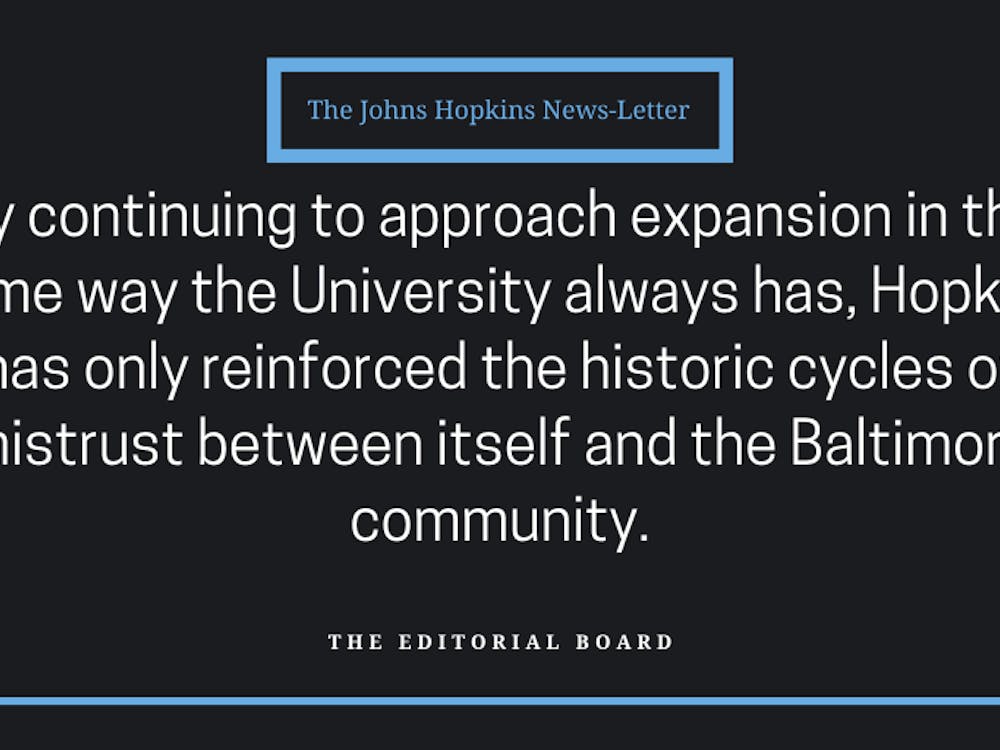In American presidential elections, the short term rules. News cycles have been dominated by Donald Trump’s latest outrageous soundbite and conspiracy theories about Hillary Clinton’s “failing” health. We’re told that Trump will immediately build a wall to “solve” the immigration crisis, and that as soon as Clinton becomes president, the email scandal will suddenly disappear.
Solving serious crises with quick fixes sounds refreshingly optimistic, but in reality, slapping short-term patches onto long-term problems is like fixing a leaky dam by sticking your finger in the crack. Unfortunately for the sake of our democracy, quick fixes just postpone the crisis for a few months or years, dooming the next generation to either attempt a fix or, as is too often the case, pass it along to their successors.
The prime example of this dereliction of duty to address the long term is the pervasive, unforgivable inaction on the impending climate crisis. Climate change, caused by industrialization and the burning of countless tons of fossil fuels over the last 150 years, is the most dangerous crisis that human society has ever faced. The doom that climate scientists and activists feel is reasonably comparable to the psychological havoc that impending nuclear war imposed on the world throughout the 20th century. And we didn’t solve that crisis; The United States lucked out.
While we, and especially our presidential candidates, should be taking climate change seriously, as a threat to the very existence of our way of life, it is relegated to questions surrounding energy. In the second presidential debate, only one question was asked that even somewhat related to the climate crisis, in response to which we had to listen to the endless, mind-numbing sputtering of Trump.
But climate change will directly affect the entire world. Food supplies will become unstable as the world loses vast swathes of arable land because of rising temperatures. The nation’s breadbasket, California, is incredibly agriculturally productive, but if temperatures rise by one or two degrees celsius, our food supply will be irreversibly limited.
Because the United States is a rich country, we will always be able to import food from the developing world, but every ton of food we extract from an underdeveloped country means one less ton for our brothers and sisters there.
Rising sea levels will force millions in the developing and developed world from their homes, adding to the already ballooning numbers of migrants and refugees, another long term crisis whose appearance has only elicited short term solutions.
The southeast of densely populated Bangladesh, a country of over 150 million people, will be completely underwater if sea levels rise 1.5 meters. Those people have to go somewhere, and Bangladesh is already bursting at the seams. Climate refugees will begin to vastly outnumber war refugees by the middle of the century, undermining already fragile international political stability.
In Louisiana, the culturally vibrant and predominantly African-American city of New Orleans will be uninhabitable by the end of the century if sea levels continue to rise at current rates. Storms on the scale of the devastating Hurricane Katrina will become more common, and disaster relief programs like FEMA will be unable to keep up with constant demand.
To make matters worse, economic inequality exacerbates what is called climate inequality. The industrialized core nations, namely Europe and the U.S., contributed the most to greenhouse gas emissions as a result of rapid and dirty economic development at the expense of the underdeveloped world.
But the rich world won’t experience the worst of it. We can always import food and build the infrastructure necessary to mitigate the worst effects of climate change. To rub dirt in the wound, developing nations that colonizers exploited for centuries to fuel their industrial growth are the worst equipped to combat climate change. They lack the vast sums or technical expertise required to lessen the devastating effects.
Instead of addressing these existential problems, the current presidential election has completely glossed over the long-term climate crisis in favor of ad hominem attacks and endless, exhausting bickering. While Bernie Sanders was clear in his support of aggressive initiatives to combat climate change, this battle should not be a partisan issue. Democrats, Republicans, Independents, Libertarians and Greens must work together to exercise the country’s power to look for solutions to the climate crisis. Because we all know that if the U.S. isn’t on board, nothing happens.
While the COP21 agreement coming into effect now is a decent first step, it goes nowhere near far enough to challenge our destructive recklessness that is directly responsible for mounting climate chaos. We need an aggressive, American-led, multilateral, binding pact that lays out clear goals towards a carbon-minimal future and provides developing nations with support in meeting the immense costs that will be required to survive in a world forever changed.
We can’t deny that overcoming climate change will be the most difficult and expensive challenge that the world has ever faced. But if we win this war, a healthier world economy will prevail, one based on equity and sustainability rather than exploitation and environmental devastation. It’s time to treat the natural world as a transnational treasure rather than a collective dump.
The American president’s job is to safeguard the prosperity of the American people. If our government continues to put off dealing with the climate crisis indefinitely, the effects will only magnify with each passing year. I hope that as president, Clinton will lead America into a green future, even if her rhetoric needs work. Trump believes that climate change is a Chinese conspiracy to neuter the American economy. I’m going to let that speak for itself.
Many young people care deeply about climate change and social justice. It’s in our hands to push our political and business leaders to act on climate now rather than later. Let’s hope our next president is listening.






















Please note All comments are eligible for publication in The News-Letter.